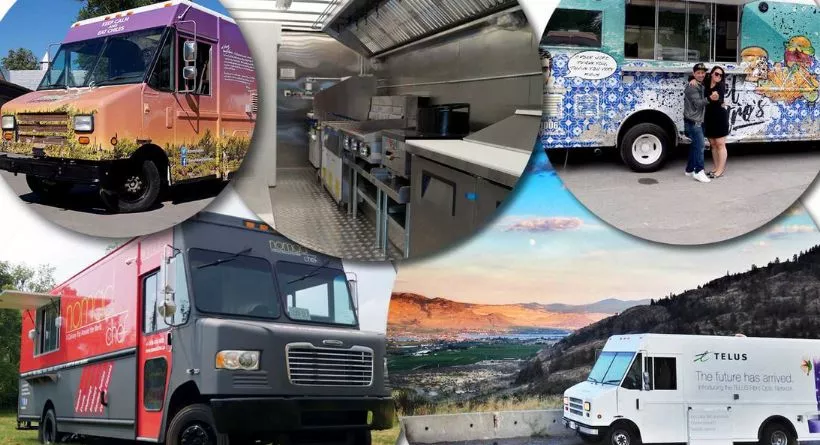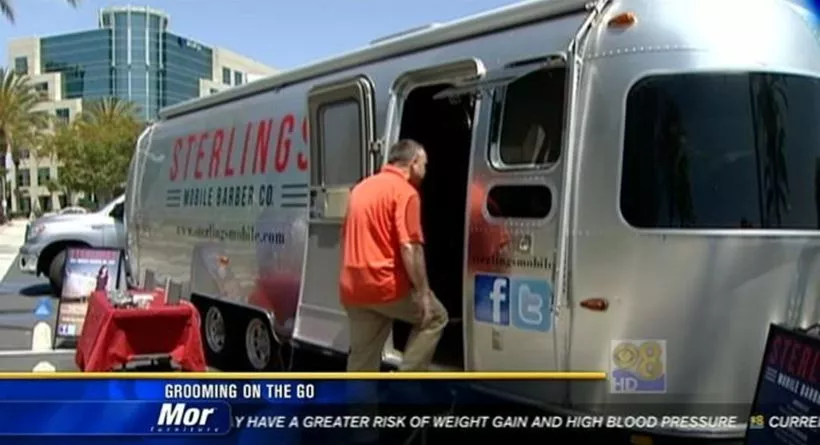Think of food trucks as the first step.
The market for such mobile enterprises grew from $615m in 2012 to $2.7B in 2017. Because of their rising popularity, individuals no longer felt they had to avoid the ease and freshness of purchasing food right from the street. The trip to the restaurant, which used to take just 15 minutes, was now unnecessary.
Now think about the rest of it. The widespread interest in food-truck cuisine has opened the door for a wide variety of other mobile enterprises to flourish. A van or truck may make the delivery of almost any product or service that consumers seek on a regular basis far more convenient.
Customers save time by waiting for the mobile company to come to them, while startups save money by not having to rent or buy a permanent location.
As the population ages, having easy access to medical care and maintenance services will become more important.
Cities are better prepared for the future of mobile companies because to the development of food trucks, which has resulted in adjustments to infrastructure and regulatory procedures.
From mobile dentistry to mobile pet grooming, this research covers dozens of potential mobile business niches and includes a case study on how to successfully launch a mobile enterprise.
Sterling’s Mobile Salon & Barber Co.: A Case Study in Mobile Commerce.
After trying a Super Cuts for the first time in 2012, Kush Kapila established Sterlings Mobile Salon & Barber Co.
Moving from Montréal, where barbershops and beauty parlors focus more on customer service, he found himself in sunny San Diego. When he asked Super Cuts to shorten his hair, he waited 45 minutes and left with a buzz cut instead.
When Kapila noticed a food truck on his way home, he made the connection that this was a business potential.
Hardly the first to launch a mobile salon, Kapila nevertheless refined the concept. He discovered via his web investigation that most firms were not expanding. Within 2–3 months, they were already useless.
Investing in a high-end Airstream trailer was his first radical step. He saw other mobile enterprises employing RVs or white vehicles that made a poor impression. Through his investigation, he learned that this problem existed even among conventional beauty parlors. It was irrelevant how handy it was, Kapila says. They won’t enter “if it looks like a trash.”
The Airstream trailer, which cost him a total of $600,000, constituted the overwhelming bulk of his first investment in the business. Kapila was able to get off the ground thanks to his own resources and the help of friends who invested in the company.
His business concept was the second big breakthrough of his career. While haircuts aren’t as frequent a need as food is, Kapila looked for ways to collaborate with businesses and make regular visits to their campuses. He had read a MetLife report that indicated that free haircuts were an attractive perk for employees (along with dry cleaning).
Several corporations, including Intuit and Qualcomm, joined forces with Sterlings. At first Kapila gave the haircuts out for free and collected money that way. Currently, daily rates at Sterlings range from $175 to $300, depending on the company. The cuts are discounted by 25% for the business clientele.
Special events are another source of income, with the delivery of the trailer to the groom and his party on the day of the wedding fetching $1,000. To the tune of $200,000 in only three weeks, Sterlings developed the tour’s trailer with the support of a large company a few years ago.
Sterlings has spread from its original location in San Diego to Orange County. Several mobile homes may be found in both regions. The business was able to save $75,000 on brand-new trailers by building them in-house.
According to Kapila, a mobile company is successful for reasons other than the ease it delivers to clients. The owner benefits greatly as well, since they save money on rent and have more active hours. Kapila has reliable clientele since he visits several establishments daily.
Kapila, who is writing a book on mobile firms, said, “You simply name it — everything is becoming mobile.”
With that framework in mind, I’ve come up with several prosperous proposals for mobile businesses.
There Will Be More Success with Mobile Business Ideas
- Professionals, like regular customers at a mobile beauty parlor, need to schedule regular visits to the dentist. Appointments might be tough to arrange around work schedules. It is possible for a mobile dentist to negotiate placement near places of business. Onsite Dental, a market leader in dental services for companies, has acquired the innovative mobile dental care provider HENRY.
- Can you have your pet’s hair cut or groomed on the go? Mobile animal hospitals? Pickup from doggie day care? Spending on pets has doubled since 1995, opening up a number of opportunities for a mobile enterprise. Rather than targeting a wide audience, most existing mobile veterinary clinics focus on their own communities and the elderly and disabled.
- If you had a large enough truck, you could set up shop as a mobile bike shop where clients could drop off their bikes and get them a few days later. Canada’s Velofix offers franchises for mobile bike mechanics in a number of U.S. and Canadian locations.
- Gyms, CrossFit, and mobile personal trainers are alternatives to the isolated Peloton for those who don’t feel comfortable working out alone. Collaboration with local businesses might be the key to success for this venture. Mobile personal training from GYMGUYZ is available in 29 states.
- Truck kitchens: an ancient idea with new applications. During the next several years, analysts predict the market will expand by 5% annually. In what city or town might a food truck company thrive? In the last year, “food truck near me” has been a popular online search phrase among residents of Hawaii, Arkansas, Oregon, and Florida. (& Food truck apps: Scott Duncan, a Trends member, proposed on Facebook that people use an app to find local food trucks, make reservations, and pay for their meals.)
- If you’re in the truck business, take a cue from Kapila and produce high-end trailers for less than the industry standard of $100,000+.



